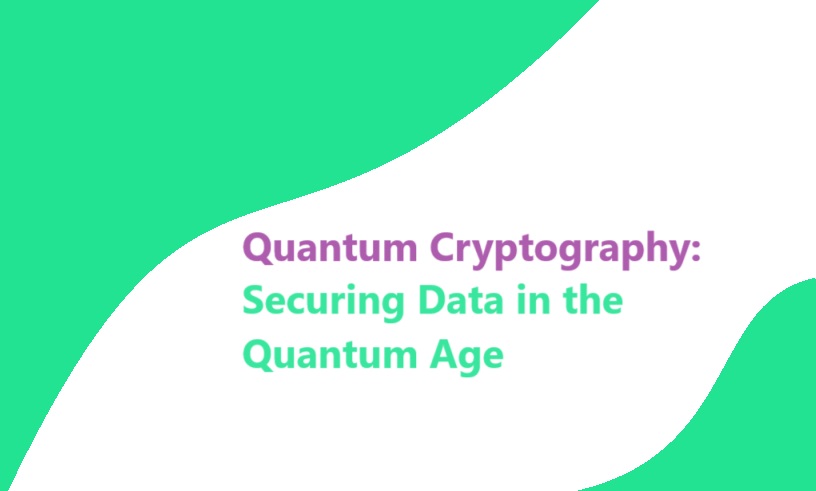Introduction
In today’s digital world, the need for secure communication and data protection is more critical than ever. Traditional encryption methods, while effective, face increasing challenges from the rapid advancements in computing power. This is where quantum cryptography comes into play, offering a revolutionary approach to secure data transmission and storage.
Understanding Quantum Cryptography
Quantum cryptography is a branch of cryptography that leverages the principles of quantum mechanics to ensure secure communication. Unlike classical cryptography, which relies on complex mathematical algorithms, quantum cryptography uses the fundamental properties of quantum mechanics to encrypt and decrypt information.
Quantum Key Distribution (QKD)
One of the key concepts in quantum cryptography is Quantum Key Distribution (QKD). QKD enables the secure exchange of encryption keys between two parties, known as Alice and Bob, over an insecure channel. The security of QKD is based on the principles of quantum mechanics, specifically the uncertainty principle and the no-cloning theorem.
Quantum Entanglement
Another fundamental concept in quantum cryptography is quantum entanglement. Quantum entanglement allows two or more particles to become correlated in such a way that the state of one particle cannot be described independently of the others. This property enables the creation of unbreakable encryption keys.
Benefits of Quantum Cryptography
Quantum cryptography offers several advantages over traditional encryption methods:
Unconditional Security
Unlike classical encryption, which relies on the computational difficulty of certain mathematical problems, quantum cryptography provides unconditional security. The laws of physics guarantee that any attempt to intercept or tamper with quantum-encrypted information will be detected, ensuring the integrity and confidentiality of the data.
Future-Proof Solution
Quantum cryptography is considered a future-proof solution because it is resistant to advancements in computing power, including quantum computers. As quantum computers become more powerful, they pose a significant threat to classical encryption methods. However, quantum cryptography can adapt and evolve to counter these threats, making it a viable long-term solution.
Key Distribution Efficiency
Quantum key distribution allows for the efficient and secure exchange of encryption keys. By leveraging the principles of quantum mechanics, QKD enables the generation of encryption keys that are random, unbreakable, and can be securely shared between parties.
Challenges and Limitations
While quantum cryptography holds immense promise, it also faces several challenges and limitations:
Practical Implementation
Implementing quantum cryptography in real-world scenarios is complex and expensive. The technology requires specialized equipment and infrastructure, making it inaccessible for widespread adoption at present. However, ongoing research and development efforts aim to overcome these hurdles and make quantum cryptography more practical.
Key Management
Quantum cryptography requires efficient key management systems to ensure the secure storage and distribution of encryption keys. As the size and complexity of networks increase, managing and updating a large number of keys becomes a significant challenge.
Conclusion
Quantum cryptography represents a paradigm shift in the field of data security. By harnessing the principles of quantum mechanics, it offers unparalleled levels of security and protection against increasingly sophisticated cyber threats. While challenges remain, ongoing research and development efforts are paving the way for the practical implementation of quantum cryptography in the near future.
References
1. National Institute of Standards and Technology. (2021). Quantum Cryptography. Retrieved from >https://www.nist.gov/topics/quantum-cryptography
2. IBM Quantum. (2021). Quantum Cryptography. Retrieved from https://www.ibm.com/quantum-computing/learn/what-is-quantum-cryptography/
3. Singh, S. (2018). Quantum Cryptography: A Comprehensive Review. Journal of Quantum Information Science, 8(1), 1-19.

